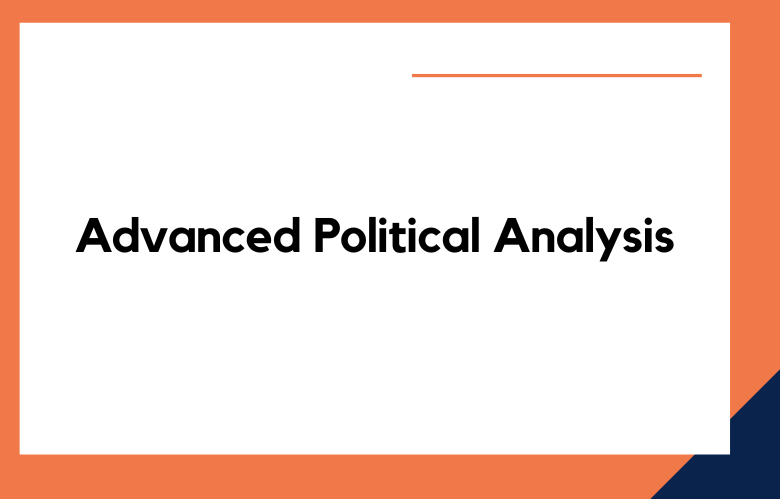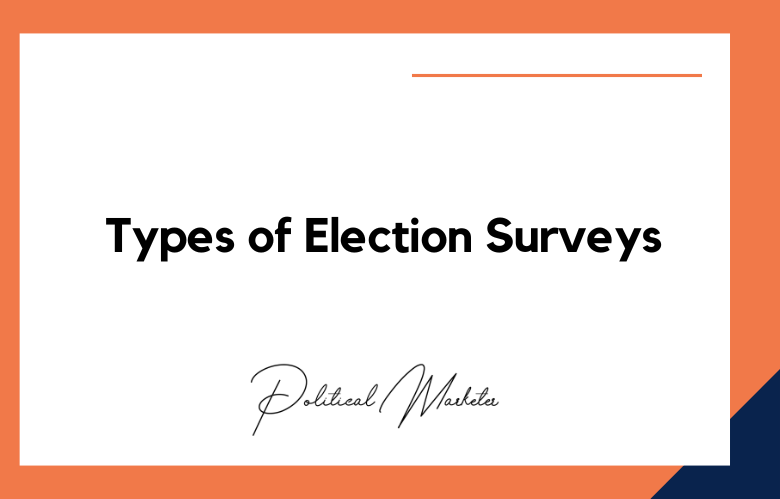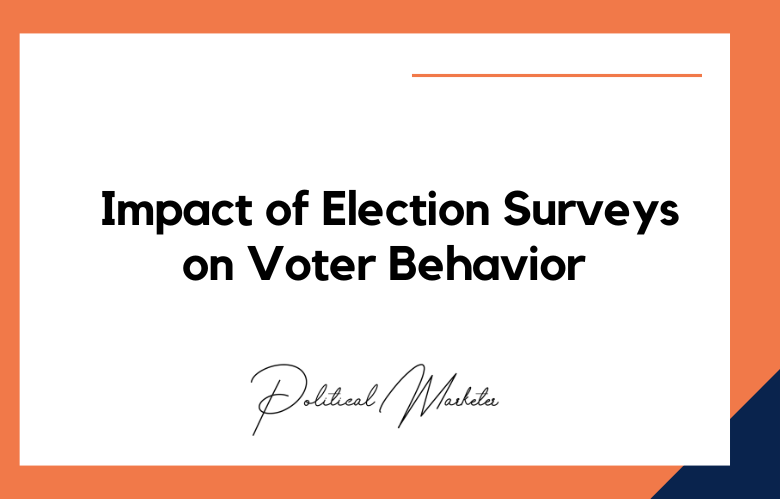While politics may seem challenging, advanced political analysis through artificial intelligence (AI) tools has made it easier than ever. AI tools such as natural language processing, machine learning, and predictive analytics can help political analysts extract insights and patterns from large amounts of data.
So whether you’re interested in tracking election campaigns, analyzing public opinion, or monitoring policy trends, in this article, we’ll share with you some essential AI tools that can help you advance political analysis.
Decoding Democracy: The Essential AI Tools for Advanced Political Analysis
As society rapidly transitions towards an increasingly digital age, the field of political analysis has also evolved. It uses cutting-edge artificial intelligence (AI) technologies to provide a deeper understanding of democracy’s complex dynamics.
In this regard, decoding democracy has become an essential task that necessitates using AI tools to process vast amounts of data, provide insightful visualization, and deliver valuable insights, enabling informed decision-making by policymakers, researchers, and the public.
One of the key AI technologies used in political analysis is natural language processing (NLP), which involves analyzing text data to identify key concepts, sentiments, and language patterns.
NLP is commonly used to analyze social media posts, speeches, and other documents, providing insights into various aspects of political discourse, including public opinion, election campaigns, and politician’s speeches.
This technology also identifies key themes and trends critical for predicting and understanding political events.
Powerful Politics: How AI Tools are Revolutionizing Political Analysis
Advancements in technology have revolutionized various industries, and politics is no exception. In recent years, Artificial Intelligence (AI) tools have been increasingly used in political analysis, offering a more comprehensive and accurate understanding of political systems and activities.
Political analysis traditionally involved subjective evaluations and limited data sources, resulting in biased conclusions. However, AI tools can streamline data analysis, detect patterns, and predict public opinion and political behavior trends.
Machine learning algorithms can scour complex databases of politics-related information, such as speeches, news articles, social media posts, and election results, to provide a detailed analysis of election campaigns and voting patterns.
AI and Politics: Unleashing the Potential with Essential Tools
Artificial Intelligence (AI) has the potential to revolutionize every sector, and politics is no exception.
With its ability to analyze vast amounts of data and automate repetitive tasks, AI offers essential tools to enhance political decision-making, optimize resource allocation, and foster public engagement.
One area where AI is already making a significant impact is in analyzing public sentiment.
By analyzing social media data and other sources of information, AI algorithms can identify trends and patterns that can help policymakers gauge public opinion on policy issues. This insight can be invaluable in shaping policy decisions and improving public engagement.
Moreover, AI-powered chatbots can automate the responding process to constituent inquiries, making political offices more efficient and responsive to the needs of the public.
By delegating repetitive tasks to machines, policymakers can focus more on strategic decision-making and tackling complex policy issues of greater importance.
Navigating the Political Landscape: Essential AI Tools for Informed Analysis
As the world becomes increasingly complex and interconnected, individuals and organizations must navigate the political landscape with a sophisticated understanding of the issues.
To make informed decisions and take effective action, we need access to essential AI tools to help us analyze and interpret the vast amounts of available data.
Predictive analytics is an essential tool for navigating the political landscape, which uses statistical algorithms and machine learning techniques to forecast future events and trends based on historical data.
For example, predictive analytics can provide valuable insights into the likelihood of specific outcomes in upcoming elections by analyzing patterns in past political polls. This can help individuals and organizations make accurate and informed predictions and plan their actions accordingly.
Unlocking Insights: The Must-Have AI Tools for Advanced Political Analysis
Artificial intelligence (AI) has revolutionized the field of political analysis, enabling researchers and analysts to uncover valuable insights that would otherwise have gone unnoticed.
The ability to process vast quantities of data in real time has been a game-changer in politics, providing powerful tools for understanding voters’ opinions, behaviors, and interests and predicting electoral outcomes.
One of the must-have AI tools for advanced political analysis is sentiment analysis. This tool uses machine learning algorithms to analyze large datasets of social media posts, news articles, and other sources to determine the overall emotional tone of the content.
By analyzing the sentiment of political messages and conversations, researchers can identify key issues that resonate with voters and monitor public opinion on candidates and policies.
Natural Language Processing (NLP):
Natural Language Processing (NLP) is a branch of AI that helps computers understand the meaning and context of human language.
NLP can help analysts in political analysis by performing speech-to-text conversion, sentiment analysis, topic modeling, and language translation.
NLP tools can quickly and accurately process large volumes of data, such as political speeches, debates, and news articles. By analyzing the tone and language used by politicians and policymakers, NLP tools can help political analysts understand the views and opinions of different political leaders.
Machine Learning:
Machine learning is another powerful AI tool that can help political analysts recognize patterns and trends in large data sets. It can predict election results, analyze voter behavior, and identify hot topics.
Machine learning algorithms can also help political analysts monitor and predict policy trends. For instance, using machine learning, analysts can expect the impact of different policies on the economy, social welfare, or the environment.
Predictive Analytics:
Predictive analytics is an AI tool that can help political analysts forecast future events and trends. It can provide insights like who might win an election, what voters care about, and what issues will be most prominent in the coming months.
Predictive analytics can analyze large data sets, detect patterns, and then generate predictions based on those patterns. Political analysts can use these predictions to develop strategic plans and predict the impact of different political events.
Sentiment Analysis:
Sentiment analysis is an AI tool that extracts insights from social media platforms. Political analysts can analyze tweets and Facebook posts to understand how the public reacts to different political events.
Sentiment analysis can detect public opinion on politicians and policies. This information can be used to adjust political campaigns, change messaging, and evaluate public perception.
Social Network Analysis:
Social Network Analysis (SNA) is an AI tool for understanding how political groups interact with each other.
By analyzing social networks, political analysts can understand how different groups are connected and how influence is distributed among other actors. SNA can help analysts identify key political influencers and how they impact policy.
Conclusion:
Political analysis constantly evolves, and AI tools have made it easier and more effective. From natural language processing to machine learning, predictive analytics, and sentiment analysis, AI tools can provide powerful insights to help policymakers, analysts, and election monitors achieve their goals.
By understanding and utilizing these essential AI tools, political analysts can better understand politics and develop better-informed political strategies. Given all that we’ve discussed, it’s clear that AI will continue to be an essential part of political analysis in the future.
Call: +91 9848321284
Email: [email protected]
AI Tools for Advanced Political Analysis: What Experts Use to Decode Voter Behavior – FAQs
What are AI tools in political analysis?
AI tools refer to artificial intelligence-driven technologies used to collect, process, and interpret vast political datasets, enabling faster, smarter decision-making in campaigns, policy, and governance.
Why are AI tools important for political analysis?
They offer real-time insights, predictive analytics, sentiment tracking, and pattern recognition, helping political strategists make data-informed decisions with precision.
What types of AI tools are used in political campaigns?
Common tools include sentiment analysis engines, voter behavior predictors, social listening platforms, chatbots, data visualization software, and predictive modeling systems.
How does AI improve voter behavior analysis?
AI algorithms analyze historical voting data, social media activity, demographic trends, and survey responses to detect voting patterns and forecast outcomes.
Can AI be used for real-time social media sentiment analysis?
Yes. Tools like Brandwatch, Talkwalker, and Sprinklr use AI to track real-time public sentiment, keyword trends, and engagement levels on political issues.
What role does natural language processing (NLP) play in political AI?
NLP helps analyze speeches, news articles, debate transcripts, and social posts to extract emotions, intent, and ideological leanings.
What AI tools are used for misinformation detection?
Platforms like Logically AI, NewsGuard, and custom-built NLP models detect fake news, deepfakes, and coordinated disinformation campaigns.
Can AI help optimize political campaign messaging?
Yes. AI tools analyze audience segments and test various messages to find the most persuasive content based on historical performance and psychographic profiling.
What is the use of predictive analytics in politics?
Predictive tools forecast election results, voter turnout, donation trends, or the impact of a policy by analyzing multiple data streams and scenarios.
Are AI-powered chatbots useful in political outreach?
Absolutely. Chatbots handle FAQs, register voters, share updates, conduct surveys, and mobilize supporters efficiently and at scale.
What tools assist in visualizing political data using AI?
AI-integrated platforms like Tableau, Power BI, and Flourish generate interactive dashboards and visual narratives from complex political data.
Can AI help in opposition research?
Yes. AI scrapes data from news, social media, past speeches, and public records to identify weaknesses, inconsistencies, or vulnerabilities in rival campaigns.
Which AI tools help in media monitoring for politics?
Tools like Meltwater, Cision, and Mention use AI to track how politicians, parties, or issues are covered across global media in real time.
How does AI enhance voter segmentation?
It clusters voters based on behavior, geography, demographics, sentiment, and interests—enabling hyper-targeted messaging and strategy.
Are there AI tools for speech and debate analysis?
Yes. AI-powered video and audio analysis platforms evaluate tone, delivery, clarity, and sentiment from political speeches or debates.
How do AI tools support policy research and forecasting?
They analyze economic, legal, and public sentiment data to simulate policy impacts and help policymakers understand potential risks and outcomes.
Can AI detect political bias in news or content?
Yes. NLP models can evaluate language tone, word frequency, and framing patterns to detect political bias in media outlets or influencer content.
What are the ethical concerns with using AI in political analysis?
Concerns include data privacy, algorithmic bias, lack of transparency, potential manipulation, and over-reliance on machine outputs.
What is the future of AI in political decision-making?
Expect deeper integration of AI in real-time polling, personalized campaign experiences, crisis forecasting, and even lawmaking simulations.
What skills are needed to use AI tools for political analysis?
Skills in data analytics, machine learning, political science, NLP, and familiarity with tools like Python, R, or AI platforms are valuable.










